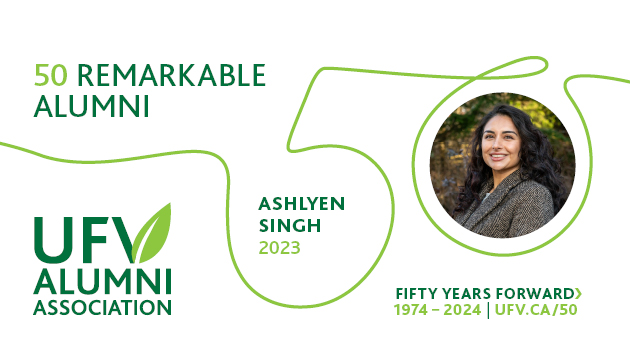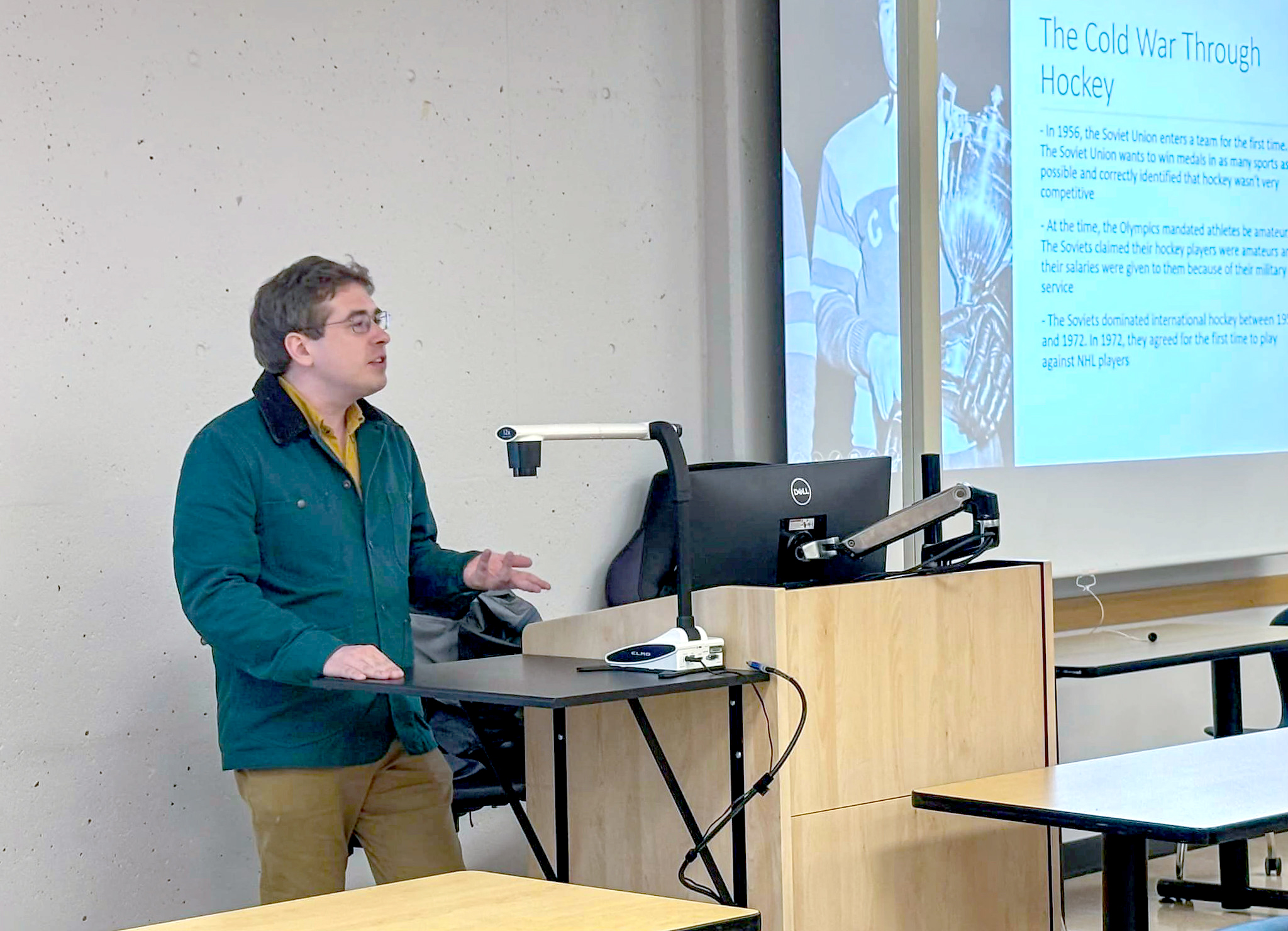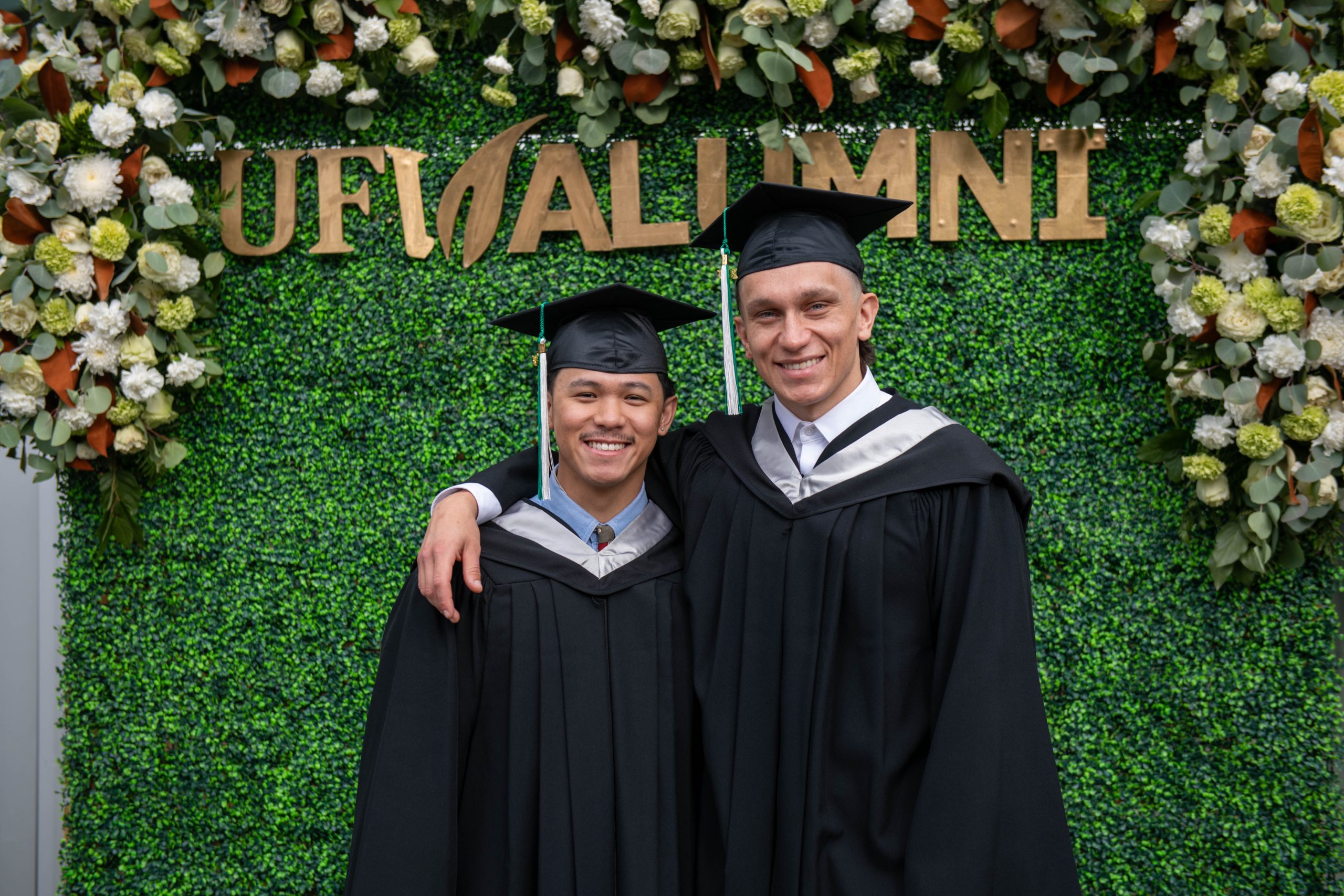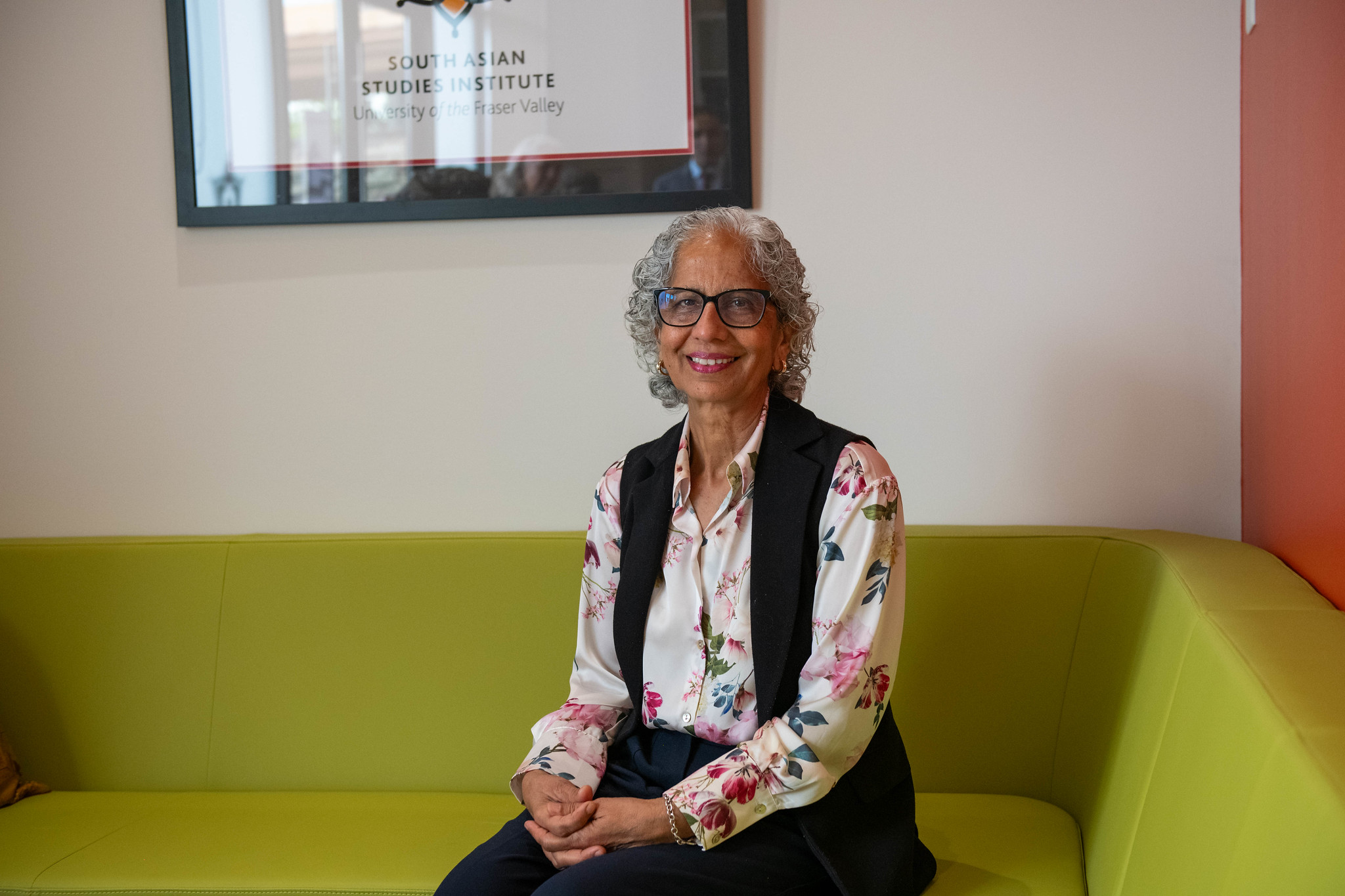50 Remarkable Alumni: Ashlyen Singh lifts others through sport, education, and leadership
Ashlyen Singh doesn’t see themself as remarkable. They balk at the idea of being recognized and are quick to shift the spotlight to the people and communities that have shaped them.
“Everything I am today has come from other people,” they say. “Everything I do is done with others, in partnership. It feels strange to be recognized alone when I have to give credit where credit is due.”
Yet the impact of their work is impossible to ignore. From co-founding the Abbotsford Basketball Association to mentoring students and shaping equitable education practices, Ashlyen has dedicated their energy to breaking down barriers and creating opportunities — especially for those often left out of the conversation.
Ashlyen’s journey began early. “Community service is a core value in our family,” they say. “Our parents were always volunteering, so we would just go with them.” By Grade 11, they were coaching basketball camps at a local middle school with their sister. As they moved through university, that passion for community service and leadership deepened. “It really picked up in my third year of undergrad,” they recall. “I had been volunteering in the community for years, but that’s when I started working with others to build something bigger.”
That “something bigger” was the Abbotsford Basketball Association (ABA), a non-profit dedicated to removing barriers for youth in sport. For six years, the ABA led programs focused on accessibility, mental health, and gender equity — ensuring that every child, regardless of background, had the chance to participate.
“A lot of kids never considered playing club sports because of financial barriers or because they don’t see people like them represented in the sport,” they say. “We wanted to change that.”
At the same time, Ashlyen worked with community services, tutoring immigrant and refugee youth, and served on the Abbotsford Police city basketball tournament committee, using sport as a tool for community building.
Through it all, Ashlyen has seen leadership and mentorship not as one-directional, but as an exchange. “A lot of people think mentoring is about shaping someone,” they say. “But really, it’s about holding up a mirror — helping people see themselves fully, recognize their strengths, and take ownership of their growth. It is an essential part of leadership. If we encourage people to be authentic, our collective growth will be greater and more sustainable”.
That philosophy shaped their work in education. Ashlyen is a three-time graduate of UFV, earning a BA (2018), BEd, (2019) and MEd (2023). At UFV, they were introduced to Indigenous educators and ways of knowing, which profoundly influenced their approach to education. “That experience changed everything for me,” they say. “It helped me expand my worldview by learning to value different forms of knowledge than the few I’d come to see as valid. It helped me begin to deconstruct the hierarchies and biases in my mind that often cause barriers in education.”
Ashlyen began their career as a middle and high school teacher. But rather than pushing students into a perceived idea of success, they focused on seeing them as they were.
“If we actually listen to students and create a space where they feel safe, they’ll tell us who they are, and what they need,” they explain. “Then it’s our job to nurture that, and to encourage agency and support as we challenge them personally and academically”.
In 2023, everything changed. A concussion left them with a permanent disability, forcing them to leave the classroom. “At first, it was devastating,” they admit. “It felt like I couldn’t be who I am, because I couldn’t do the things that I used to do.”
For over a year, they grieved the life they had built. Slowly, they began to reframe their approach. “I had to look at my values and say, ‘Okay, I can’t act on them the same way, but I can still act on them — just differently.’”
Now, they work as a Secondary Helping Teacher in the Abbotsford School District, supporting educators with curriculum, instruction, and assessment. Though they no longer teach students directly, they continue to shape classrooms in meaningful ways, ensuring that equity remains at the forefront of how schools serve their communities.
They have also continued their academic work, publishing research on educator well-being and leader well-being, and presenting at national education conferences.
Despite the accolades and recognition, including the BC School Sports Women in Sports and Leadership Award in 2023, Ashlyen remains deeply reflective about how success is perceived.
“It’s hard, because when you’re nominated for something like this, people only see the highlights,” they say. “They don’t see how many times I failed, how many times I had to pick myself up and try again. My life has been messy. It hasn’t always been easy.”
For students entering university — or those stepping into the world beyond it — Ashlyen offers a simple but profound piece of advice: root yourself in community.
“I always told students to have at least five different places where they feel connected — whether that’s mentors, friendships, teams, cultural groups, or clubs,” they say. “It helps strengthen your identity. And if you face adversity, you will have support.”
Their own journey has been anything but linear. It has been filled with unexpected turns, setbacks, and pivots. But through every shift, Ashlyen has remained anchored in the communities they serve — proving that success isn’t about following a straight path, but about staying true to what matters most.






